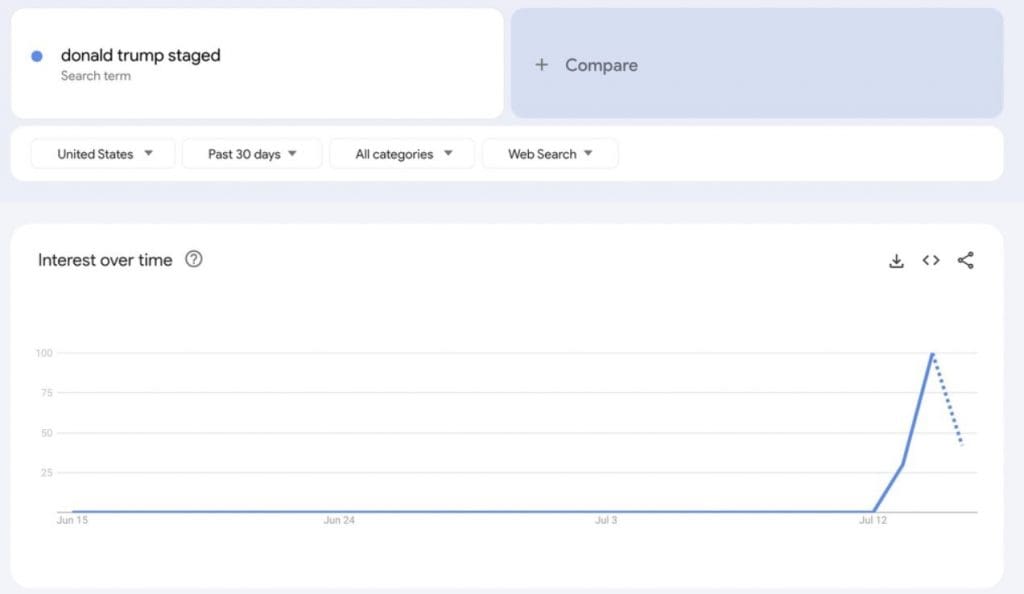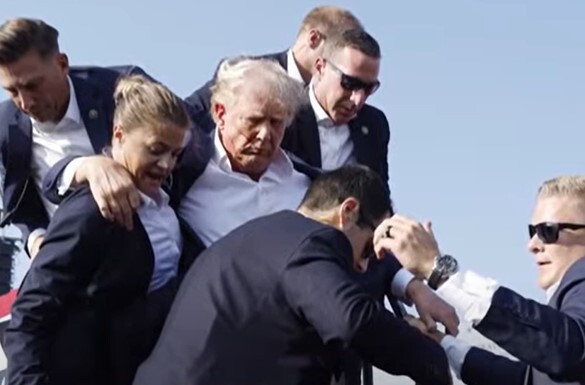Following the assassination attempt on former President Donald Trump at a rally in Butler, Pennsylvania, a conspiracy theory has emerged online, claiming the incident was staged. Despite eyewitnesses, camera footage, and the tragic outcome, some social media users are convinced the event was orchestrated. The FBI is investigating the attack, which saw Trump injured in the upper-right ear, one rally-goer killed, and two others critically injured. The shooter, Thomas Matthew Crooks, was shot dead by Secret Service agents.
The conspiracy theory gained traction on X (formerly Twitter), with users questioning the Secret Service’s actions and the visible blood. Some compared the response to a 2016 incident when Trump was quickly rushed off stage over a gun scare, suggesting inconsistencies. Actress Amanda Seales also weighed in, likening the gunshots to “popcorn” and implying the use of a “blood pellet.” Sharing photos of Trump raising his fist in the air after the shooting, one user wrote, “If this were truly an assassination attempt, do you think the Secret Service would allow an open, clear target like this?”
??BREAKING: Actress known for her role in “Insecure” Amanda Seales said that Donald Trump's assassination attempt was staged.
— Dom Lucre | Breaker of Narratives (@dom_lucre) July 14, 2024
Seales: “That sh*# was more staged than a Tyler Perry production of Madea Runs for President
I lived in Harlem long enough to know gunshots do not… pic.twitter.com/8Omo4xWUAN
Google searches for terms like “Donald Trump staged shooting” have surged, reflecting growing public interest in the theory. Despite this, the FBI confirmed that the firearm used was purchased legally and that they have searched the shooter’s home and vehicle for additional evidence. The ongoing investigation aims to clarify the circumstances surrounding the attack and dispel misinformation. The Secret Service has defended its actions, stating that once the shooter was neutralized, they secured Trump and the area as per protocol.

Supporters of the theory have also pointed to Trump’s response after being shot, where he defiantly raised his fist and mouthed “fight” to the crowd. They argue that this behavior is inconsistent with someone who had just survived an assassination attempt. Critics of the theory, however, emphasize the chaotic nature of such incidents and the unpredictable behavior of individuals under extreme stress.
The spread of these conspiracy theories highlights the deep political divisions and the growing distrust in official narratives. It underscores the challenge for authorities to manage public perception and combat misinformation in the digital age. As the investigation continues, it remains crucial to rely on verified information and to approach such claims with skepticism.




